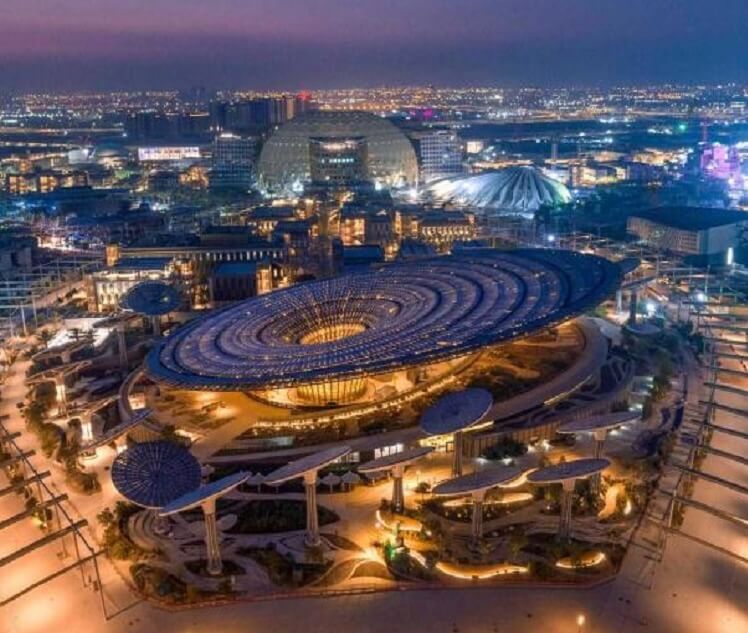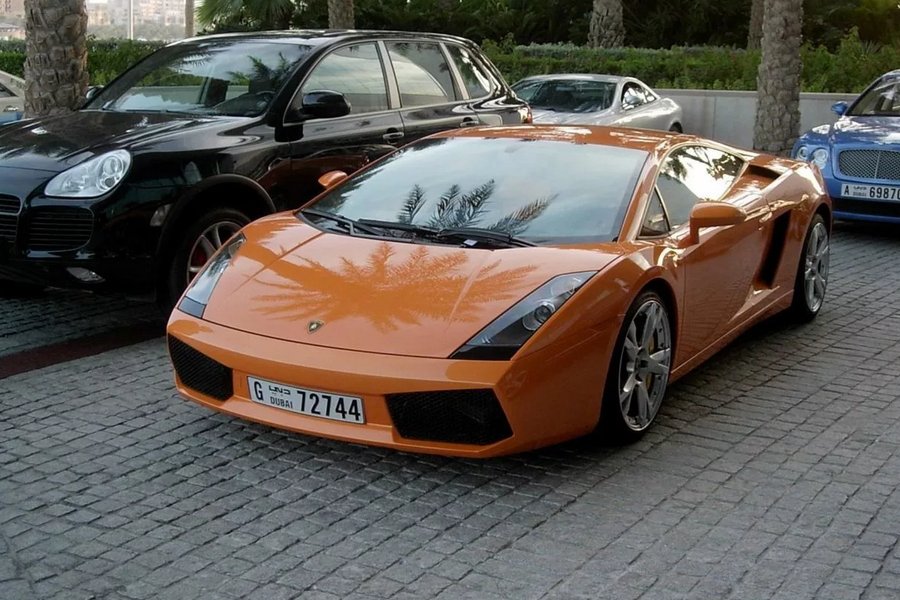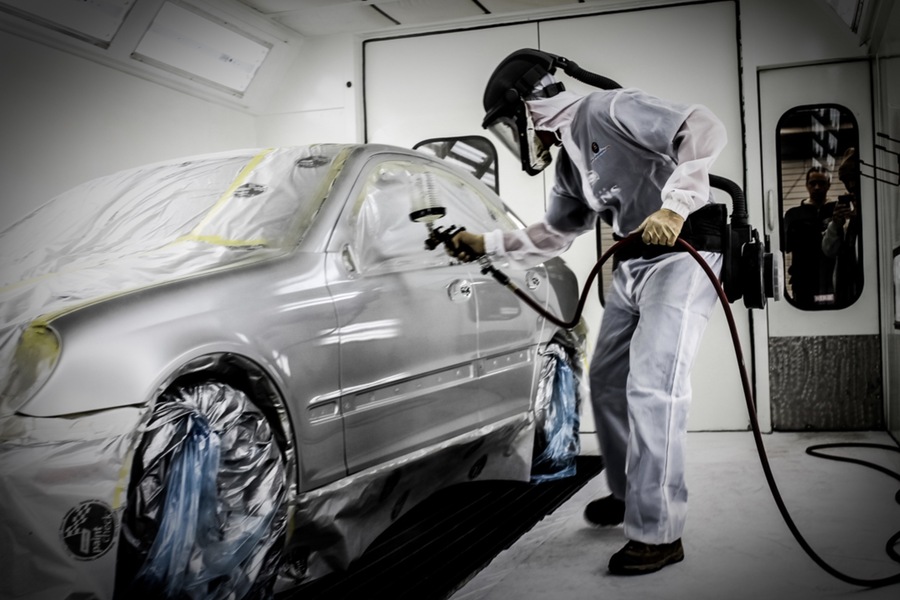Expo 2020 Dubai, a landmark event held from October 1, 2021, to March 31, 2022, showcased the UAE’s commitment to innovation, sustainability, and global collaboration. This world exposition attracted millions of visitors and participants from around the globe, offering a unique platform for countries and businesses to display their achievements and forge new partnerships. The long-term effects of Expo 2020 on company formation in Dubai and investment trends in Dubai are profound, influencing the economic landscape, creating new opportunities, and presenting challenges. This article thoroughly explores these impacts, providing insights into how Expo 2020 has shaped Dubai’s business environment.
Overview of Expo 2020 Dubai
Expo 2020 Dubai was the first World Expo held in the Middle East, Africa, and South Asia (MEASA) region. The theme “Connecting Minds, Creating the Future” focused on three main sub-themes: Opportunity, Mobility, and Sustainability. The Expo featured over 190 participating countries, numerous pavilions, and various events, conferences, and exhibitions.
Key Highlights
- Innovative Pavilions: Each participating country had its pavilion, showcasing innovations, culture, and business opportunities.
- Sustainability Initiatives: Expo 2020 emphasized sustainability, with numerous green technologies and sustainable practices on display.
- Global Participation: The event attracted global leaders, entrepreneurs, investors, and visitors, fostering international collaboration and networking.
Long-Term Effects on Business Formation
Expo 2020 Dubai has left an indelible mark on Dubai’s business landscape, influencing business formation in several ways.
Increased Foreign Direct Investment (FDI)
One of Expo 2020’s most significant impacts is Dubai’s increase in foreign direct investment (FDI). The Expo provided a global platform for Dubai to showcase its business-friendly environment, advanced infrastructure, and strategic location.
Key Factors Driving FDI
- Global Exposure: Expo 2020 attracted international businesses and investors, increasing interest in setting up operations in Dubai.
- Investment Incentives: The UAE government offered various incentives, such as tax breaks and streamlined business setup processes, to attract foreign investors.
- Sectoral Opportunities: Expo 2020 highlighted key sectors such as technology, healthcare, and renewable energy, driving sector-specific investments.

Growth of Startups and SMEs
Expo 2020 has also catalyzed the growth of Dubai’s startups and small and medium-sized enterprises (SMEs). The event fostered an entrepreneurial spirit and provided numerous opportunities for startups to showcase their innovations.
Supporting Ecosystems
- Incubators and Accelerators: The Expo saw the launch of several incubators and accelerators, providing startups with mentorship, funding, and networking opportunities.
- Innovation Hubs: Innovation hubs and tech parks, such as Dubai Silicon Oasis and Dubai Internet City, played a crucial role in supporting startups.
- Access to Funding: The increased visibility and networking opportunities at Expo 2020 made it easier for startups to attract venture capital and other forms of funding.
Diversification of the Economy
Expo 2020 has contributed to the diversification of Dubai’s economy by promoting various non-oil sectors. This diversification is crucial for the long-term sustainability of the economy.
Key Sectors
- Technology and Innovation: The Expo showcased cutting-edge technologies and innovation, positioning Dubai as a tech hub.
- Sustainability and Green Energy: With a strong focus on sustainability, Expo 2020 promoted investments in renewable energy and green technologies.
- Tourism and Hospitality: The influx of visitors during the Expo boosted the tourism and hospitality sectors, leading to increased investments in hotels, restaurants, and related services.
New Opportunities
Expo 2020 has created many new opportunities for businesses and investors in Dubai. These opportunities span various sectors and offer significant potential for growth and development.
Technology and Innovation
The technology and innovation sector has seen substantial growth due to Expo 2020. The event highlighted Dubai’s commitment to becoming a global tech hub, attracting tech companies and startups worldwide.
Areas of Innovation
- Artificial Intelligence (AI): Investments in AI technologies have increased, with Dubai aiming to become a leader in AI applications.
- Blockchain: The Dubai Blockchain Strategy aims to make Dubai the first city fully powered by blockchain by 2025.
- Smart Cities: Expo 2020 showcased smart city technologies, leading to increased investments in urban innovation and smart infrastructure.

Renewable Energy and Sustainability
The core theme of Expo 2020 was sustainability, which led to increased interest in and investment in renewable energy and sustainable practices.
Key Initiatives
- Solar Energy: The Mohammed bin Rashid Al Maktoum Solar Park, one of the largest solar parks in the world, was a focal point of Dubai’s sustainability efforts.
- Green Buildings: Investments in green building technologies and sustainable construction practices have surged.
- Circular Economy: Expo 2020 promoted the concept of a circular economy, encouraging businesses to adopt sustainable and eco-friendly practices.
Tourism and Hospitality
The tourism and hospitality sector has experienced a significant boost due to Expo 2020, creating new opportunities for businesses and investors.
Expansion Areas
- Luxury Hotels and Resorts: The influx of visitors has increased demand for luxury accommodations.
- Cultural and Entertainment Venues: Investments in cultural and entertainment venues like museums and theme parks have grown.
- Culinary Tourism: Dubai’s diverse culinary scene has attracted food enthusiasts, leading to the growth of restaurants and food-related businesses.
Challenges and How Dubai is Addressing Them
While Expo 2020 has created numerous opportunities, it has also presented challenges that must be addressed for sustained growth and development.
Infrastructure Strain
The massive influx of visitors during Expo 2020 strained Dubai’s infrastructure, including transportation, utilities, and public services.
Solutions
- Infrastructure Upgrades: The Dubai government has invested heavily in upgrading infrastructure, including expanding the metro system and improving road networks.
- Smart City Solutions: Implementing smart city solutions has helped manage infrastructure demands more efficiently.
Economic Volatility
The global economic environment remains volatile, posing long-term investment and business stability challenges.
Strategies
- Economic Diversification: By diversifying its economy, Dubai aims to reduce reliance on any single sector and mitigate the impact of global financial fluctuations.
- Policy Reforms: The UAE government continues implementing policies to create a more resilient and stable economic environment.
Competitive Market
The increased interest in Dubai as a business hub has led to heightened competition, making it challenging for new businesses to establish themselves.
Approaches
- Supportive Ecosystems: Dubai offers various support mechanisms, such as incubators, accelerators, and funding opportunities, to help new businesses thrive.
- Strategic Partnerships: Forming partnerships and collaborations can help businesses gain a competitive edge.
Market Trends
Expo 2020 has set several market trends that will likely shape Dubai’s business and investment landscape for years.
Digital Transformation
Digital transformation has become a key trend, with businesses across sectors adopting digital technologies to enhance operations and customer experiences.
Key Areas
- E-commerce: The growth of e-commerce platforms has accelerated, driven by changing consumer behaviors.
- Fintech: The fintech sector has grown significantly, with innovations in digital payments, blockchain, and financial services.
- Telehealth: The healthcare sector embraces telehealth and digital health solutions, improving access to medical services.
Focus on Sustainability
Sustainability continues to be a major focus, influencing business practices and investment decisions.
Sustainable Practices
- Green Finance: Investments in green finance and sustainable projects are increasing.
- Corporate Social Responsibility (CSR): Businesses integrate CSR initiatives into their operations, promoting sustainability and social responsibility.
- Environmental Regulations: Stricter environmental regulations are encouraging businesses to adopt eco-friendly practices.
Rise of Hybrid Work Models
The COVID-19 pandemic has accelerated the adoption of hybrid work models, combining remote and in-office work.
Implications
- Flexible Workspaces: The demand for flexible workspaces, such as co-working spaces and serviced offices, is rising.
- Digital Tools: Investments in digital tools and platforms to support remote work are increasing.
- Employee Well-being: Companies focus on employee well-being, offering flexible work arrangements and support services.
Recent Insights
Recent insights indicate that Expo 2020’s long-term effects are already being felt across various sectors in Dubai. The city’s strategic initiatives and forward-thinking policies position it for continued growth and development.

Government Initiatives
The Dubai government has launched several initiatives to build on the success of Expo 2020 and attract further investments.
Key Initiatives
- Dubai Industrial Strategy 2030: Aimed at transforming Dubai into a global platform for knowledge-based, sustainable, and innovation-focused businesses.
- Dubai 2040 Urban Master Plan: This plan focuses on sustainable urban development and enhances Dubai’s global business and tourism hub position.
Business Sentiment
Business sentiment in Dubai remains positive, with increased confidence in the city’s economic prospects and investment opportunities.
Survey Insights
- Increased Investment Plans: A survey by the Dubai Chamber of Commerce revealed that 70% of businesses plan to increase their investments in Dubai over the next five years.
- Positive Economic Outlook: Most businesses expect the Dubai economy to grow, driven by strategic initiatives and government support.
Prices in AED
The cost of setting up a business in Dubai varies depending on the type of business, location, and services required. Here is a general overview of the expenses in AED:
- Free Zone Company Setup: AED 5,900 to AED 22,900 (depending on the number of visas and additional services).
- Mainland Company Setup: Starting from AED 18,900, with variations based on business activities and additional services.
- Co-Working Space Membership: AED 500 to AED 2,000 monthly for a dedicated desk.
- Virtual Office Package: AED 1,000 to AED 5,000 per year.
These prices reflect the competitive and flexible options for businesses looking to establish a presence in Dubai.
Conclusion
Expo 2020 Dubai has profoundly impacted Dubai’s business formation and investment trends. The event has increased foreign direct investment, spurred the growth of startups and SMEs, and contributed to the diversification of the economy. New opportunities have emerged in sectors such as technology, renewable energy, and tourism, while challenges related to infrastructure, economic volatility, and competition are being addressed through strategic initiatives.
The long-term success of Expo 2020 lies in Dubai’s ability to build on the momentum and continue to attract businesses and investors. With supportive government policies, advanced infrastructure, and a commitment to innovation and sustainability, Dubai is well-positioned to thrive in the post-Expo era. For businesses and investors, Dubai offers a dynamic and promising environment in which to achieve growth and success.

Skateboarder, ninja, guitarist, Mad Men fan and creative consultant. Doing at the sweet spot between modernism and programing to develop visual solutions that inform and persuade. Let’s design a world that’s thoughtful, considered and aesthetically pleasing.






